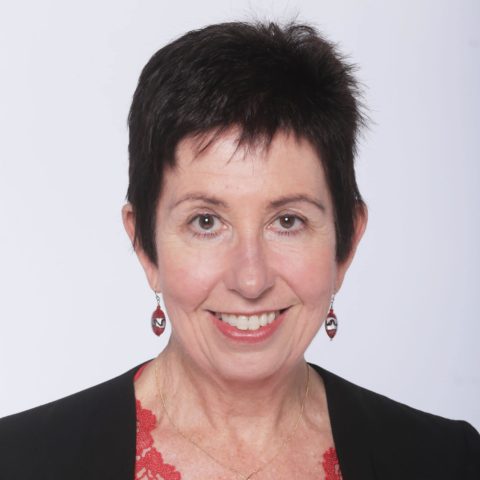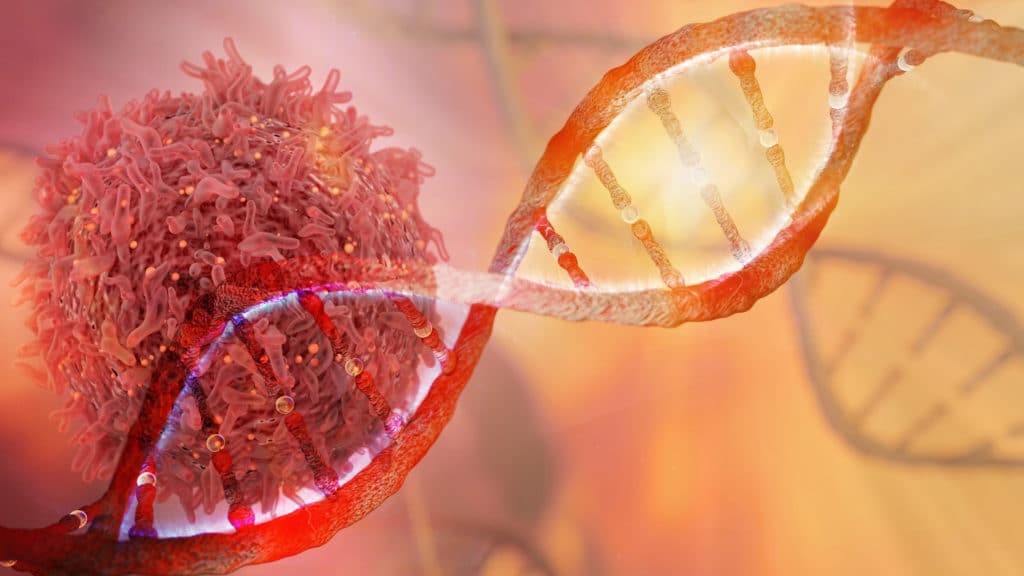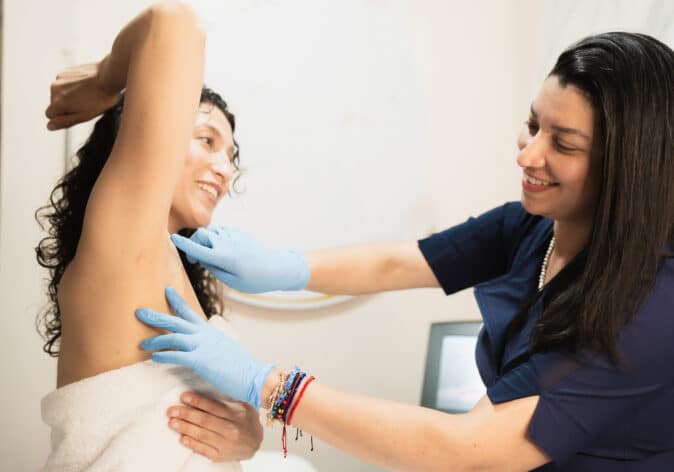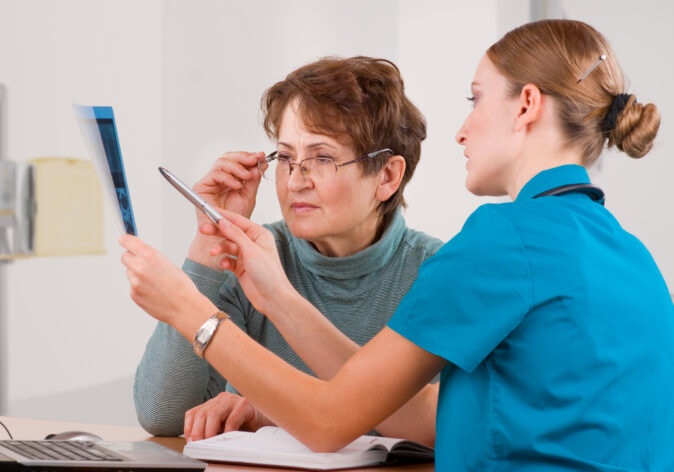What Are the BRCA1 & 2 Gene Mutations?
Approximately 5-10 per cent of breast cancers are due to a strong family history or genetic mutation such as the BRCA1 or BRCA2 gene mutation.
The discovery of these gene mutations was revolutionary for those with a strong family history of breast and ovarian cancer.
It has allowed for these women to take preventative measures or engage in screening earlier therefore reducing their risk of being diagnosed with these diseases.
Cancer Geneticist Associate Professor Judy Kirk from the Familiar Cancer Service at Westmead Hospital said the discovery of the genes was a breakthrough in the cancer field.
“It was in about 1990 that Mary-Claire King, in the United States, realised that there was certain a little position on chromosome 17 that members of these families sort of shared a chunk of and so found the location of the gene.”
“But she didn’t find the gene,” said Associate Professor Kirk.
“Then there was a huge amount of work that went on all over the world, really a race to find this gene.”
Eventually researchers at Myriad Genetics in Utah in the United States published the finding of the BRCA1 gene mutation.
“They didn’t really know what it was, but they knew that faults in this gene passed down caused a high risk of breast and ovarian cancer and only since then has it become apparent that BRCA1 is a really important gene involved in proliferation and cell cycle, DNA repair.”
“It’s a really critical gene, in fact if you’re born with two faulty copies of that gene, you mostly don’t survive as an embryo.”
“So, it’s critical in early development as well.”
“But the people that we usually see have one good copy and one faulty copy of that gene. Angelina Jolie is one those people.”
You can inherit the BRCA1 and BRCA2 gene mutation from either parent.
Additionally, if you have the faulty gene, there is a 50/50 chance that your children will have it.
Listen to the Podcast
Women who carry BRCA1 or BRCA2 gene mutations have a high risk of developing breast and ovarian cancer. Associate Professor Judy Kirk explains what the BRCA is & measures women with the mutation can take.
Preventative Options For Those With The BRCA1 or BRCA2 Gene Mutation
Those who have confirmed they have the BRCA1 or BRCA2 gene mutation can make the decision to have preventative measures to significantly reduce their chances of being diagnosed with breast and ovarian cancer.
Associate Professor Kirk said it is a decision that is completely dependent on an individual’s circumstance.
“The mastectomy is a very big operation, usually done with reconstruction.”
“Probably more younger women take that up because they’ve got a much longer life to live with the risk of breast cancer.”
“Whereas if somebody finds out about this gene fault at the age of 70 and they’ve never had breast cancer, we would never advise a double mastectomy at that point.”
“So, it does depend on age, but overall, Professor Kelly-Anne Phillips has done a study in the Australian population that indicates that about 30% of women take up the opportunity of bilateral mastectomy.”
“This may be because it is a very big operation and we do have good breast cancer screening but there is no screening test for ovarian cancer. And so the uptake of risk-reducing salpingo-oophorectomy, that’s the tubes and ovaries, the uptake of that is very high.”
“It would be over 90% of women would take up the opportunity of that surgery.”
Associate Professor Kirk did stress that it was not an easy decision for these women to make.
“If you do have that surgery under the age of 40 you induce menopausal symptoms.”
“If we have women who haven’t had breast cancer in the past and are quite happy to use hormone replacement therapy in the safest form up until the age of about 50, the quality of life for those women should not be significantly altered by having their surgery to reduce their cancer risk.”
Breast Cancer Trials currently is conducting research to give these women another option.
The BRCA-P clinical trial is open to women aged between 25 – 55, with a known BRCA1 gene mutation, with no current or previous breast cancer diagnosis, and are not planning to have, or have not already completed surgery to remove both breasts.
This breast cancer clinical trial hopes to find if using a drug called Denosumab is a safe and effective way of preventing breast cancer.
The Angelina Jolie Effect
Awareness around the BRCA gene mutations was thrust into the headlines in 2013 thanks to actress Angelina Jolie undergoing a double mastectomy after testing positive for the BRCA1 gene mutation.
Associate Professor Kirk said she did a great job of helping to raise awareness and understanding of the gene mutation and its risks.
“I think she did it in the very best of ways,” said Associate Professor Kirk.
“She had a mother with ovarian cancer.”
“Her mother was tested, so the affected family member tested as is standard procedure.”
“If they found nothing, there would be no test for Angelina. But they found a mistake in BRCA1 and so she was tested”
“She had a 50/50 chance of having it, and because she had it, she chose to have her risk reducing surgery. Both for the breast tissue, with a reconstruction, and also, a little further down the track she had the ovaries and fallopian tubes removed.”
Associate Professor Kirk said Angelina Jolie has been a positive role model for how genetic testing and risk reducing surgeries should be conducted.
“She took her time to decide what would be best for her and not everyone will make the same decisions.”
“A 70-year-old who finds out that she’s got a BRCA mutation should not make the same decision as Angelina, but if she’s really healthy, she should think about having her ovaries removed and have breast screening.”
If you would like to keep up to date on the BRCA-P clinical trial, you can subscribe to our BRCA-P newsletter here.
Support Us
Help us to change lives through breast cancer clinical trials research




